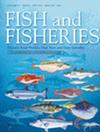渔民的当地生态知识揭示了快速变暖水域复杂的食物网动态
IF 6.1
1区 农林科学
Q1 FISHERIES
引用次数: 0
摘要
当地生态知识(LEK)可以提供对生态系统变化的洞察,特别是在动态生态条件下,如气候变化驱动的生态条件下。在新英格兰的龙虾渔业中,变暖的海水有可能破坏食物网,因为范围转移的物种引入了新的生态相互作用。本文通过对缅因州和马萨诸塞州龙虾渔民的访谈,了解龙虾渔民对动态食物网的LEK,采用心理建模方法构建快速变暖水域下LEK食物网模型。我们发现,渔民正在观察不同栖息地的生态相互作用,集体报告了35种物种的知识,这些物种在幼虫、幼鱼和成年生命阶段与龙虾发生营养相互作用,从陆生物种如水貂(Neovison vison)到深海物种如红鱼(sebases fasciatus)。我们的LEK食物网表明,海水变暖改变了物种的丰度和相互作用,对龙虾渔业产生了总体负面影响。渔民还报告了复杂相互作用的知识,包括捕食、竞争和栖息地丧失,这些都是由海水变暖和物种丰度变化引起的。最后,我们确定并分类了导致渔民LEK的三种主要途径,包括观察、口口相传和推理。我们的研究结果表明,活跃的渔民对快速变化的动态生态系统中食物网的相互作用有复杂的理解。由于管理无法跟上气候驱动的变化,渔民的LEK是宝贵的知识来源,利用这些知识可以提高人们了解海水变暖对沿海生态系统的各种影响的能力。本文章由计算机程序翻译,如有差异,请以英文原文为准。
Fishers' Local Ecological Knowledge Reveals Complex Food Web Dynamics With Rapidly Warming Waters
Local ecological knowledge (LEK) can provide insight into ecosystem change, particularly in dynamic ecological conditions, such as those driven by climate change. In New England lobster fisheries, warming waters have the potential to disrupt food webs, as range‐shifting species introduce novel ecological interactions. Here we use interviews with lobster fishers in Maine and Massachusetts to understand lobster fishers' LEK of dynamic food webs, taking a mental modelling approach to construct LEK food web models under rapidly warming waters. We find that fishers are observing a remarkable range of ecological interactions across habitats, collectively reporting knowledge of > 35 species that interact trophically with lobster across larval, juvenile, and adult life stages, ranging from terrestrial species like mink (Neovison vison Sebastes fasciatus
求助全文
通过发布文献求助,成功后即可免费获取论文全文。
去求助
来源期刊

Fish and Fisheries
农林科学-渔业
CiteScore
12.80
自引率
6.00%
发文量
83
期刊介绍:
Fish and Fisheries adopts a broad, interdisciplinary approach to the subject of fish biology and fisheries. It draws contributions in the form of major synoptic papers and syntheses or meta-analyses that lay out new approaches, re-examine existing findings, methods or theory, and discuss papers and commentaries from diverse areas. Focal areas include fish palaeontology, molecular biology and ecology, genetics, biochemistry, physiology, ecology, behaviour, evolutionary studies, conservation, assessment, population dynamics, mathematical modelling, ecosystem analysis and the social, economic and policy aspects of fisheries where they are grounded in a scientific approach. A paper in Fish and Fisheries must draw upon all key elements of the existing literature on a topic, normally have a broad geographic and/or taxonomic scope, and provide general points which make it compelling to a wide range of readers whatever their geographical location. So, in short, we aim to publish articles that make syntheses of old or synoptic, long-term or spatially widespread data, introduce or consolidate fresh concepts or theory, or, in the Ghoti section, briefly justify preliminary, new synoptic ideas. Please note that authors of submissions not meeting this mandate will be directed to the appropriate primary literature.
 求助内容:
求助内容: 应助结果提醒方式:
应助结果提醒方式:


